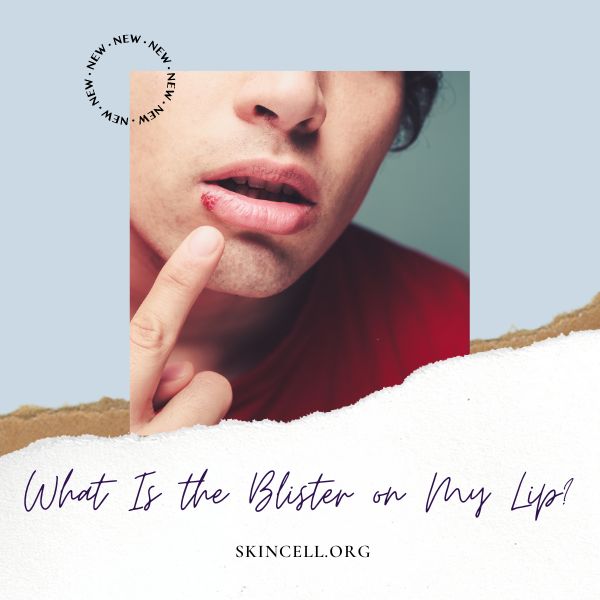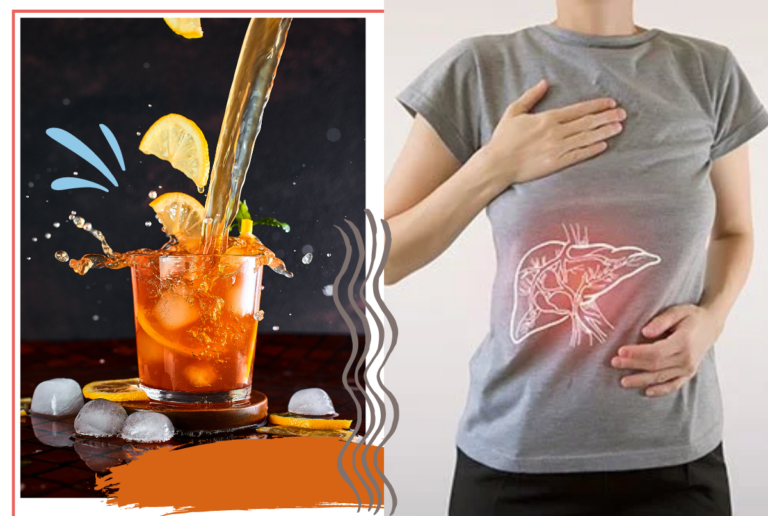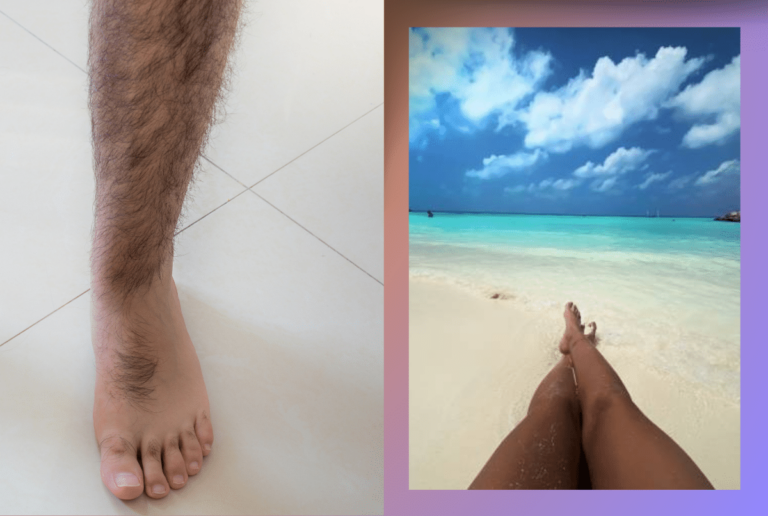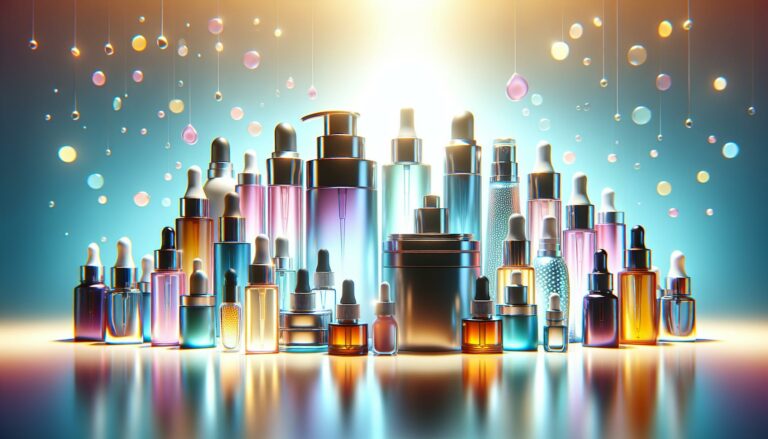What Is the Blister On My Lip? (It’s NOT a Cold Sore!)
Thousands of people in the US experience lip blisters. And many mistake it for cold sores!

Honestly, lip blisters are caused by a range of factors, such as extreme temperatures and allergic reactions, among other things. In short, lip blisters can be triggered by causes known and unknown.
At times, even moving to a new place may result in you experiencing lip blisters due to environmental changes. Most lip blisters heal naturally or with little help. However, some of them might be chronic and require medical attention.
In today’s guide, we will take you through all that you need to know about the different types of lip blisters and how to handle them.
Dive in!
Different Types Of Blisters
1. Sun Blisters
Blisters on the lips caused by exposure to the sun are so common that they are often termed “sun blisters.” Children who play in the sun or adults who work outdoors are most susceptible to experiencing sun blisters. Unless you ensure that your lips are properly protected, exposure to the sun’s rays can burn the lip area and lead to blisters.
Be warned; sun blisters can be pretty painful and result in sleepless nights. But if they are treated on time, they may not turn into anything severe.
Unfortunately, if you pay no heed to them and continue exposing your lips to direct sun rays, the blisters might even turn cancerous. So, we suggest that you try to get relief from sun blisters at the earliest. For pain relief, you can use a cold compress, which works like magic on sunburns and blisters.
If the pain is too much and you are seeking instant relief, you can take ibuprofen or apply antibiotic ointments. In case you are looking for more natural solutions, we suggest that you apply aloe vera gel to the sun blisters.
Remember never to burst these blisters. That can delay the healing process and, in the worst-case scenario, even lead to infections. It is best that you do not bother them and give them sufficient time to heal.
2. Blood Blisters
Honestly, blood blisters can look a bit scary as they are filled with blood and make your lips look inflamed. These blisters are caused when blood vessels rupture right below the surface of your lip tissues. When the rupture occurs, and the blood gets trapped under the skin and fails to drain, blood blisters might appear.
There have been no conclusive records in medical science that explain why these blisters occur. However, doctors say that some of the most general reasons behind them can be allergic reactions, stress, and dental work. Sometimes, because of local trauma or the continuous use of steroids, blood blisters can appear on your lips. Also, you would be surprised to know that many people experience blood blisters because of excessive lip biting.
In most cases, these blisters heal rather fast without much help. But, in certain situations, it is best that you monitor them closely. When you see that a blood blister is showing no signs of healing or keeps recurring at the same spot on your lips, it is best to get it checked by a doctor.
You might need help from a physician if the blisters are too big and hinder your regular food consumption. In case you see that blood blisters are appearing right after you get the dental fixtures adjusted, talk to the dentist and ask for help.
3. Water Blisters
Unlike the previous two types of blisters that can appear anywhere on your lips, water blisters generally develop on your lower lip. In medical terms, they are referred to as mucous cysts or mucoceles. Water blisters are filled with fluid and have a bluish or reddish tint to them.
Most people will tell you that water blisters occur when one intentionally or accidentally ends up sucking their lips between their teeth. In that case, the tissue gets ruptured, and water blisters might appear. However, it has been seen that water blisters at times develop without any direct cause.
In most cases, these blisters do not last for a long time and are not painful. But some people have noted that their water blisters have become permanent because they did not burst on time. So, if you find that the blister is not bursting naturally, visit your dentist, who can help with this.
4. Cancerous Blisters
At times, lip blisters can be cancerous and require immediate help from the doctor.
Most medical professionals claim that a majority of cancer-related issues in the mouth are the result of prolonged alcohol and tobacco use. So, if you drink frequently or are a chain smoker, it is best to monitor your habits closely and stay extra cautious if a blister appears on the lips.
Even long exposure to the sun can be a major reason that can lead to lip cancer. Hence, if you are someone who has to spend long hours being exposed to the sun, it is necessary that you take proper precautions. We suggest that you wear a cap or apply sun protection on your lips.
Apart from this, there are other factors too that might lead to the development of cancerous lip blisters.
If you see that a lesion, lump, or blister has been present on your lips for a long time and is showing no signs of going away, it is best to get it checked. In case your lips are constantly bleeding or there are red or white patches, they might be a sign of oral cancer.
That said, the symptoms of lip cancer are always not that obvious or, at times, can be late in appearing. So, it is best to get yourself checked by a dentist at least twice a year. Only regular dental examinations might help you figure out if you are suffering from oral cancer.
5. Allergic Effects
Many people experience lip sores and swellings that are caused by allergic reactions. And these reactions might arise out of multiple things. You might be hypersensitive to certain types of medication and food, and when you consume them, allergic reactions might appear. And you may end up with blistered or swollen lips.
Wondering why that happens? To protect your body from the intrusion of foreign bodies, your immune system might use swelling as a form of defense. In most cases, allergic reactions do not last for long, and the symptoms only stay for a while. However, in extreme cases, such as anaphylaxis, it is best that you get yourself checked by a physician at the earliest.
If you notice severe symptoms appearing, such as swollen eyes and face, or encounter problems with breathing, visit a doctor immediately.
6. Burnt Lips
At times, your lips might come in direct contact with a substance that is too hot. This might happen when you are consuming any hot beverage or food. And when your lips get exposed to an extreme temperature, it might burn your lips, and blisters might appear.
This problem can be treated in the same way you treat sun blisters. For quick relief, get a pack of ice or cold compress and apply it to your lips. And in case the pain is too severe, you can take ibuprofen.
Sometimes blistering resulting from burnt lips may leave a permanent scar. However, in most instances, that’s not the case, and the marks fade quite fast. Just ensure that you treat your lips immediately after they come in contact with a hot substance. That will enhance the chances of complete healing.
Best Ways To Get Rid Of Lip Blisters
To know how to cure lip blisters, you will first need to figure out what is causing them.
In case it is caused by high exposure to the sun or because of physical trauma, an anti-inflammatory ointment can come to your rescue. And consider taking ibuprofen if the pain is too much to handle. You can also use other things like a cold compress to get instant relief.
On the other hand, if your lip blister appears because of allergic reactions, immediately try to identify the allergen and stop consuming it. Once you stop taking the food or the medication that caused the allergy, you can use anti-inflammatory ointment on the lips, and the blister will soon heal.
Final Words
By now, you must have understood that lip blisters might be caused by a range of factors and are not always cold sores.
Keep in mind that if the blister formation does not result from viral or bacterial infections, it won’t be contagious. However, if you notice recurring lip blisters that resemble small pimples, you must get tested for Methicillin-Resistant Staphylococcus Aureus (MRSA). It is a contagious bacteria and can be transferred to others.
In case none of the aforementioned relief techniques work for you and the blister on your lips is spreading, it is best to consult a doctor.
Until next time, stay safe. And take care!






